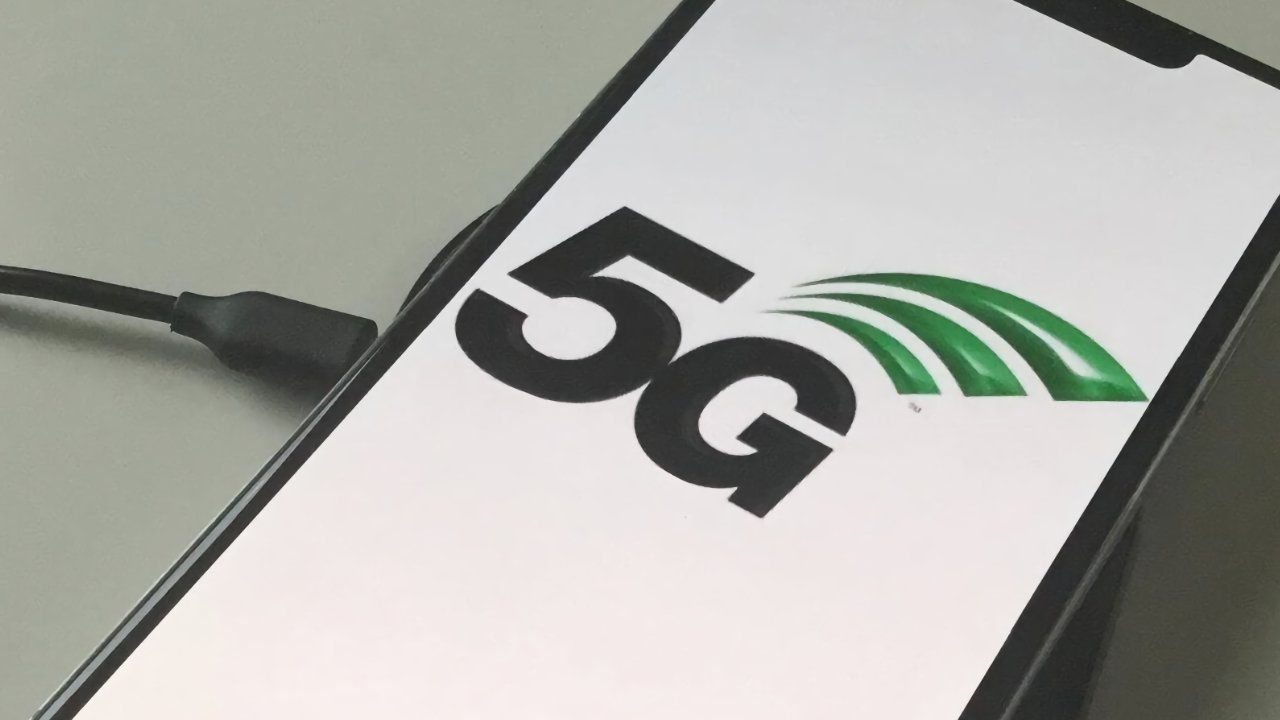Apple's self-made modem is a massive challenge, but with big rewards at stake
Apple's move towards creating its own modems could revolutionize how it produces mobile devices like the rumored Apple Glass, but only if it can match or exceed the performance of its existing modem supplier, Qualcomm.
Following an unexpected settlement with Qualcomm in 2019 to end patent infringement legal action, Apple has been a major client of the modem maker's products. However, with Apple working on its own modems, the days of using Qualcomm's communications hardware may be numbered.
In a Saturday profile of Apple's modem efforts, the Wall Street Journal outlines the challenge Apple faces in creating modems that are good enough for Apple to use instead of Qualcomm's version.
The rewards are numerous, including 5G in items like the MacBook Pro and extremely fast speeds for iPhones. For future hardware augmented reality headsets and smart glasses could benefit from the fast speeds, with the former needing high bandwidth but minimal latency to be worthwhile.
Apple's work in the field was bolstered by the acquisition of most of Intel's smartphone modem business and the onboarding of some 2,200 engineers, but Apple continues to expand its talent pool in the field.
Approximately 140 job postings based in an Apple office in San Diego, the hometown of Qualcomm, center around the creation of cellular chips. Meanwhile a satellite engineering office in Irvine, California has around 20 similar open positions, potentially to try and tempt employees of Broadcom over to the company.
Current expectations has Apple moving to its own modems from 2023, with TSMC expected to be the producer of the chips for the iPhone maker.
Making its own modem offers Apple advantages in a number of areas, including cost-savings and a reduction in reliance from suppliers like Qualcomm, which Apple has a tension-filled relationship with, CCS Insight senior director of research Wayne Lam told the report.
The ability to fine-tune the modem for Apple's intended purposes is also a big benefit, as it could adjust the modem to work in specific ways for one product, but in others to be more effective for another item.
As for what this could look like, the report points to Apple Silicon's impact, which involved high power efficiency chips that out-performed Intel's alternates. Lam offers the same sort of design improvements could improve the connectivity of smaller devices like the Apple Watch.
However, Tantra Analyst founder Prakash Sangam offers that "in some ways a modem is more complex" than a processor like the M1, in part due to the complexity of dealing with many circumstances that can affect a signal. This could make it harder for Apple to produce, increasing the relative development time.
"If you throw enough time and resources and money at it, it can be done," says Sangam. "But whether they can do it by 2023, I don't think anyone other than Apple can say."
 Malcolm Owen
Malcolm Owen














 Amber Neely
Amber Neely
 Thomas Sibilly
Thomas Sibilly
 AppleInsider Staff
AppleInsider Staff
 William Gallagher
William Gallagher

 Christine McKee
Christine McKee










28 Comments
Thank you for this insider look. I have been following AI since 1997. This kind of story is what AI used to give once a week. This is the first excellent future looking story I’ve read here in over a year. The person who wrote this needs to be in charge of AI. The rest of the stories are for morons..
So what's in a modem that is different / hard compared to the M1?
Seems an odd statement to just hang out there.
I think Apple “re-invent” a xG modem is not a big thing, the powerful punch is they integrate the modem into the A-chip or M-chips, the table may turnaround.